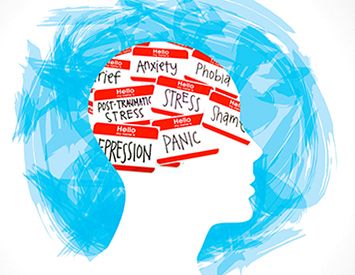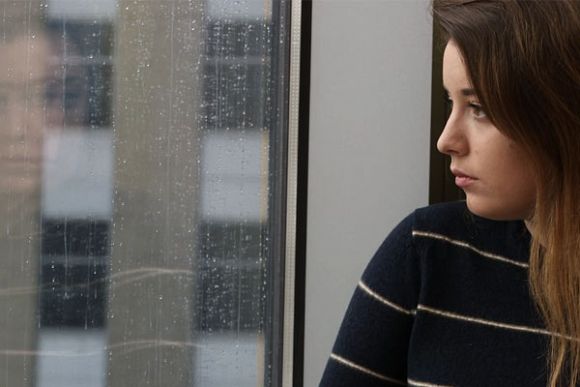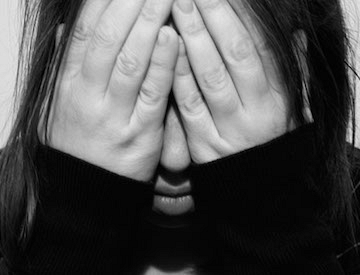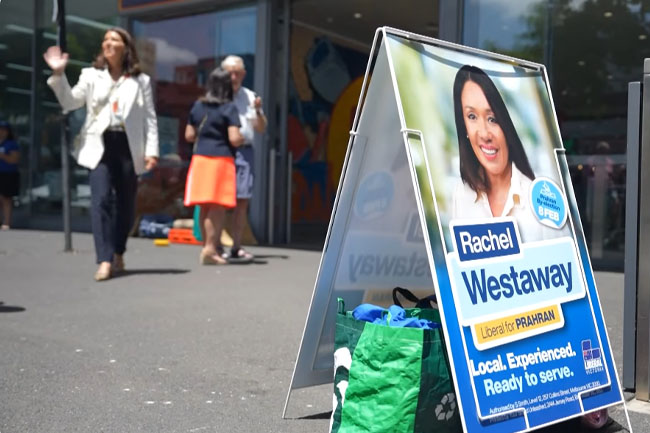Australia’s COVID-19 experience is quickly creating a mental health minefield, writes Naomi Fryers.
THROUGH LIVED EXPERIENCE and in both a personal and professional capacity, I’ve come to know the Victorian private and public mental health systems quite intimately. Public settings are as they have always been: underfunded and under-resourced. They are a far cry from an idyllic haven for a therapeutic recovery that one may initially anticipate when seeking out support from professional, government-run service providers.
In the coming weeks, with metropolitan Melbourne citizens already in a strict lockdown, living under an 8 pm curfew, mental health service supports will arguably face their greatest test. How they can quickly adapt and perform to cater to those most vulnerable will reflect on our entire nation.
I have a unique standpoint on the mental health system in Victoria. I have been a patient, served as a support worker in a public inpatient ward and also worked as a patient advocate. I have also served in an advisory capacity to enhance service delivery models for more effective provisions.
In Australia, suicide is already a leading cause of death for people aged between 15 and 44. According to Lifeline in 2018, 3,046 Australians took their own life. With figures twice that of the national road toll, that is one of our nation’s greatest shames.
The fallout from the coronavirus pandemic (including its associated economic consequences and uncertainty) has many questioning whether this figure will soar. Particularly so with the compounding issues of isolation, limited mental health resourcing, unemployment and poverty.
The risks to vulnerable individuals are enormous. Real-time data on how this is playing out in our communities may not be available for some time. According to the Sydney Morning Herald, it remains to be seen whether such information will ever be made public.
A factor that must be considered is how those with long-term mental health concerns may cope in the future, within the context of a bleak economic outlook and cost-cutting exercises.
For those who have never been through the emotional turmoil of living with a mental health condition, it can be quite difficult to fathom the compounding impacts of isolation and lockdown in the grips of a global pandemic.
Additional risks include being cut off from support services and local communities, unemployment, poverty, feelings of helplessness and the vicarious trauma that can impact the vulnerable by consuming news reports. That is without the feelings of being largely confined within four walls, with your innermost demons.
The National Disability Insurance Scheme (NDIS) has been widely criticised over the years, for being inaccessible to many mental health patients. Far too many have fallen through the cracks. For those patients that don’t have private health insurance, but don't qualify for case management by the public sector, there is very limited support available.
Having spoken to myriad consumers over the years, I can assure you that plenty of psychiatric triage simply calls go unanswered. Even for the patients "lucky" enough to get through after dialling for urgent help, if they actually make it into hospital, restricted visitor access means experiencing the recovery ordeal largely alone.
In some health sectors, there has been collaboration between public and private sector staff amid resourcing reshuffles. This is something that has the potential to save lives. If voluntary patients in the public sector in Melbourne could be reallocated to empty beds in private sector settings, more beds would be made available to those impacted most acutely.
The service disparities are stark and the old adage "money talks" has never rung so true. If now is not the time to bridge the gap between the "haves" and the "have nots" in terms of adequate survival services, it will likely never happen.
If Australia can find a way forward for some limited elective surgeries, now isn't the time to shirk their moral responsibility for those most vulnerable and fighting to survive. Prime Minister Scott Morrison has been making the right noises of late, pledging to back the mental health of Australians with additional financial support and extra resourcing, having just last year appointed a new suicide prevention adviser.
Unfortunately, the messaging is mixed. Many Australians are left pondering: are we really all in this together? And if so, why can the rich, famous or well-connected like Danni Minogue, dodge quarantine with flexible rules, while others in need can’t access familial support?
Morrison has asked us to refrain from hugging our family members, yet he was also enjoyed close crowd contact and a beer watching the Cronulla Sharks. All the while, aged care residents in privately run facilities under his jurisdiction of care were contracting the deadly infectious disease, some of whom then died.
The Premier of Victoria, Daniel Andrews, was also widely condemned (in particular by News Corp) for the serious security breaches involving alleged sexual relations between quarantine guards and those supposed to be in isolation. Public health bureaucrats were seemingly congratulating themselves over the debacle during ill-fated and damning zoom meetings which would later become public.
There was also the Premier’s snap decision to enforce hard lockdown on vulnerable residents in North Melbourne and Flemington public housing towers. While in hindsight, neither of these Labor Government decisions were foolproof plans destined to win over the masses.
However, perhaps spruiking the performance of the New South Wales Liberal Party and Premier Gladys Berejiklian’s handling of the Ruby Princess debacle to the NSW residents who lost loved ones, would seem equally counterintuitive.
The circumstances of COVID-19 pandemic are unprecedented and unforeseen. Voters, constituents, mental health consumers and their loved ones need to remember these facts. Fortunately, Victorians still have safe nurse-to-patient ratios in place, because of progressive politicians including Andrews who fought to keep them in place.
While their performance record is not without blemishes, without safeguards for our healthcare workers risking it all on the frontline, we would be even less supported during this pandemic if the conservative government had its way.
These are services we are relying on like never before.
Under a conservative Liberal government in Victoria, we’d be even less prepared for this pandemic had we not elected a government already willing to invest heavily in health and education before the crisis point. Likewise, mental health services and welfare charities will also require funding like never before.
The COVID-19 pandemic is quickly becoming a precarious minefield to navigate, especially from a mental health perspective and frustrations are undoubtedly running high.
It is definitely a hard time to have mental health challenges, but we must not give up. We must continue to voice our concerns, seek out the support we deserve and demand it where it doesn’t already exist. If there was ever a time we needed to bridge the gap and create adequate resources, it is now. We cannot afford to lose sight of the bigger picture: lives will depend on it.
Naomi Fryers is an Independent Australia intern and freelance writer based in Melbourne.
Disclaimer: Naomi Fryers' internship, auspiced by Arts Access Victoria, is funded by a Sustaining Workers Grant, dispersed by the Victorian Government via Creative Victoria. Full editorial control is maintained by Independent Australia.
If you or someone you know is in immediate danger or psychological distress, contact the following services: Emergency 000, Lifeline 13 11 14, Kids Helpline 1800 55 1800, MensLine 1300 78 99 78, Suicide Call Back Service 1300 659 467
Related Articles
- MUNGO MACCALLUM: Political squabbling is worsening COVID-19 crisis
- COVID-19 demands a social democratic response, not a neoliberal disaster
- The personal impact of the elective surgery backlog
- Wren's Week: COVID-19 complacency escalated by conservative commentary
- The rise of police power due to COVID-19
 This work is licensed under a Creative Commons Attribution-NonCommercial-NoDerivs 3.0 Australia License
This work is licensed under a Creative Commons Attribution-NonCommercial-NoDerivs 3.0 Australia License
Support independent journalism Subscribe to IA.
















